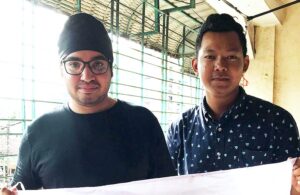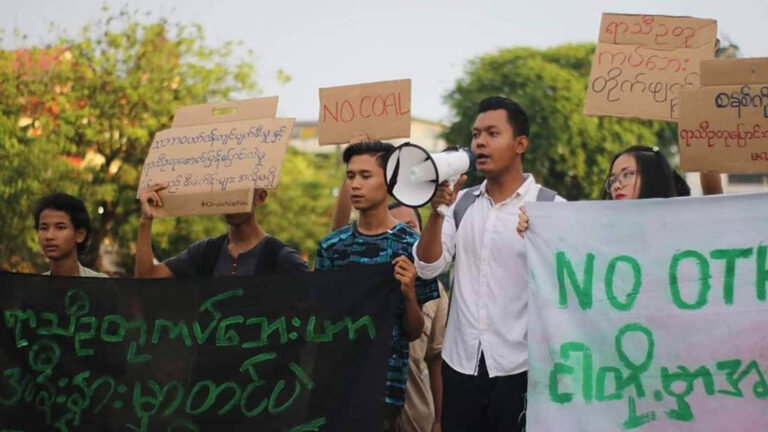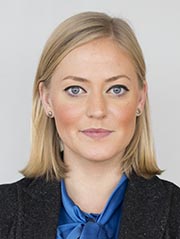The climate strike that Greta Thunberg started last year has spread all over the world. FUF's correspondent met two climate activists in Myanmar - a country that is hard hit by climate change.
Myanmar has experienced several extreme natural disasters in recent decades. One of the most serious is cyclone Nargis in 2008. It led to the death or disappearance of about 140 people and nearly 000 million people were left homeless or forced to flee. The cyclone also swept away a staggering 2,5 homes, half of all fishing boats and three-quarters of animal husbandry. Huge damage that requires enormous resources to deal with.
Climate activist Kyaw Ye Htet believes that climate change is a major problem in Myanmar.
"Developing countries do not have the capacity or infrastructure in place to deal with natural disasters, and the Myanmar government also lacks a plan to deal with this," he said.
This year there were floods in several states, including the states of Kachin in the northeast and Rakhine on the west coast. By July, more than 57 people had been forced to flee floods. Myanmar's largest city, Yangon, also had large bodies of water and had limited mobility and electricity supply - to name a few of the problems that arise.
I meet Kyaw Ye Htet and Zay Linn Mon who are two young environmental activists at the headquarters of the National Youth Congress of Myanmar. It is a collaborative organization for the youth movement that strives to give young people more space and influence. The two environmental activists are also active in that fight.
This is what civil society often looks like for young people involved in Myanmar. They have many sour apples to bite into and they are not pulled to grab the next problem. The office is located in Hledan north of central Yangon. The district is referred to as "the second downtown". Here, markets are interspersed with shopping centers and freshly grilled street food. But most noticeable is perhaps the heavily trafficked road that cuts right through Hledan. The exhaust fumes lie like a heavy blanket over the lane and it is sometimes difficult to breathe.
Requires that dams be stopped

Kyaw Ye Htet and Zay Linn Mon want to see a change and therefore started Climate Strike Myanmar, which places three demands on the government. To begin with, they want the government to recognize the climate crisis and take measures to tackle it.
- We also want the government to stop projects that cause climate change, including the Myitsonne dam and other similar mega-projects that lead to climate disaster, says Kyaw Ye Htet.
He is referring to China's mega dam of $ 3,6 billion, which is ranked as one of the largest hydropower projects in the region. The project is controversial and the various ethnic and religious groups along the Irrawaddy River united in national protests against the dam.
Among other things, it was criticized that the dam does not take into account land rights and culture and that it destroys agriculture, fishing and animal husbandry. In addition, the electricity produced would be carried across the border to China. The Myitsonne dam was stopped by the previous government in 2011 and has continued to be a mourning child ever since.
But to stop climate change, Kyaw Ye Htet also has expectations that actors other than just the government will act.
- We want civil society and the general public to get involved in the climate movement, says Kyaw Ye Htet.
Parents are negative about demonstrations
Despite the demands, it now seems rather the climate activists' method that has aroused the most criticism from various quarters. It is not obvious to get support for demonstrations in Myanmar. Some civil society representatives have criticized Climate Strike Myanmar for upsetting the government - which in turn questions cooperation with other parts of the environmental movement.
- Participating in demonstrations and protests is seen as something bad by parents of activists, by other civil society organizations and by the general public. This creates problems when parents would rather encourage children to waste their money on card games than go on strike for the climate, says Zay Linn Mon.
Strikes are not without risks in Myanmar, which ranks 138th out of 180 in the measurement of press and freedom of expression according to Reporters without borders. Journalists, activists and critics of the regime are constantly at risk of being prosecuted and corruption in the judiciary is widespread. Therefore, critics are also sometimes encouraged to self-censor.
Despite difficult conditions, the initiative started at the end of May ahead of the second global climate strike, in which more than 1,5 million young people took part in more than two thousand cities in 125 countries. Since then, they have had time to strike five times and there will be more. The "greta effect" has reached Myanmar, albeit to a limited extent.
- Today we are about 20 people in the team that organizes the climate strike and about 40-50 striking activists in total, but we are currently investing in being out at schools and universities and informing about climate change to engage more, says Kyaw Ye Htet.
Wants the government and the outside world to act
Today, the Myanmar government is collaborating with the international community, the UN and various civil society organizations under the initiative Myanmar Climate Change Alliance (MCCA). It aims to strengthen institutional and human capacity to implement climate change efforts. The government has also launched its climate policy.
But this is not enough, say climate activists.
- The government must go from paper to action and implement the policy they have developed. Without the implementation, there will be no improvement, says Kyaw Ye Htet.
Kyaw Ye Htet and Zay Linn Mon also think that the outside world has a great responsibility - not least ASEAN countries, China, USA and EU. They need to develop their policies to address climate change in a first step, but their policies must also be followed by companies.
- Companies need to be regulated and they must also act on the basis of social responsibility and sustainable business, says Zay Linn Mon.
Investing in more collaborations
The work of lifting the climate crisis higher up on the political agenda continues. Among other things, Climate Strike Myanmar plans to broaden its collaborations and to arrange training in political campaigns where they have invited the organization 350 - an experienced organization when it comes to developing campaigns.
- We network a lot with other parts of the business with a focus on the countries in Southeast Asia. For example, Thailand, Bangladesh, Australia, Indonesia, Taiwan, Japan, but also with Hong Kong, says Kyaw Ye Htet.
Zay Linn Mon also states that they now collaborate with the organization Turning Tables Myanmar, which supports young people to express themselves through music. Now they will help Climate Strike Myanmar to produce songs that can be sung during upcoming climate strikes.
We do not know exactly when the next national climate strike will end, but we know that we will participate in the third global climate strike in September and until then we are out and encourage more people to participate, says Kyaw Ye Htet.


